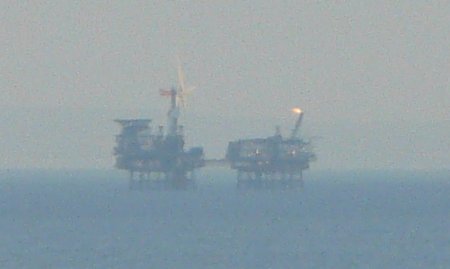Lybster, Whaligoe Steps and Wick – Scotland 2010
On our route up the A9/A99, we called in at the fishing village of Lybster, but probably wouldn’t recommend this. It’s another village that seems to have suffered from the decline of the fishing industry and does not really have much to offer visitors, although the public toilets were clean and open – something which seems more common in Scotland than in England.
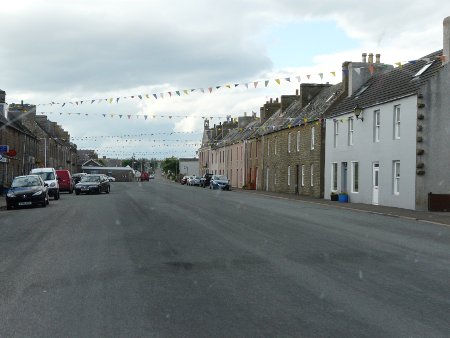
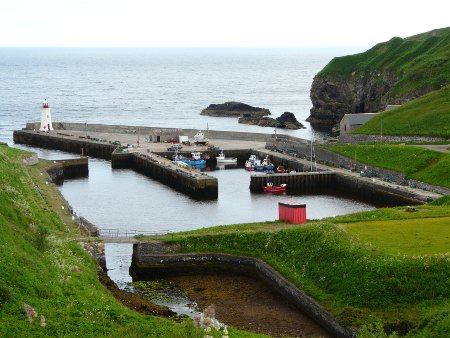
After spending a night in a large off-road layby on the A99 (in front of this disused church) we called in to Whaligoe to see the Whaligoe Steps. This is a fascinating little glimpse of the area’s fishing heritage and well worth the small diversion off the A99. It’s not signposted at present but the turning you need is almost opposite the signposted turning for the Cairn of Get. At the end of the road is a small parking area and about 350 steps that lead down to what must have been one of the most ingeniously-designed fishing harbours in the UK.
The cliffs in this small harbour rise about 250 feet up and are nearly vertical. Despite this, there was, until the mid-20th century, a small but thriving fishing harbour at the bottom of this bay. Herring, cod, salmon and crab were caught and much of the herring was salted on The Bink – the small harbour area – before being loaded onto ships periodically for onward transport. Meanwhile, fresh fish was carried by the fishermen’s wives up the steps and taken (on foot) to sell as far away as Wick, seven miles up the road.
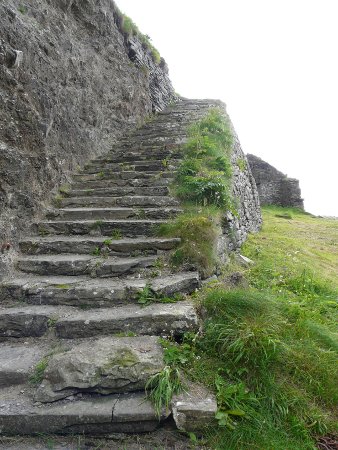
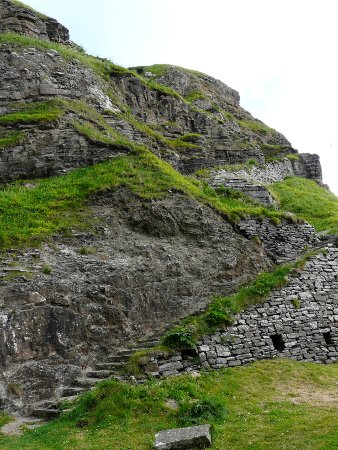
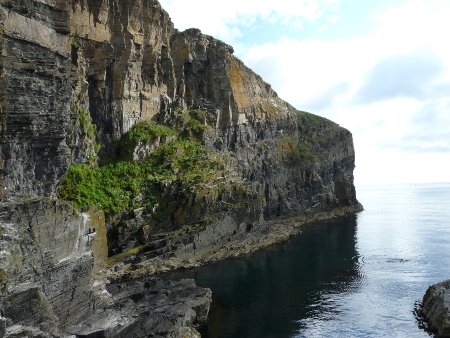
It was truly a different world – and one brought to life by the grandson of one of the last fishermen at Whaligoe, who looks after the site with his cousin and showed us an old photo of the site, as it was in 1945 when his grandfather was one of the last few fishermen still fishing from Whaligoe. Incidentally, the name Whaligoe is derived from Whale Geo, or Whale Inlet. It is so-called because whales used to sometimes get trapped in the harbour, due to prevailing currents along the coast.
After Whaligoe Steps we visited Wick, which has a huge Tesco store that is an excellent place to stock up before heading out to Orkney, as we were planning to do. The rest of Wick wasn’t that great, to be honest – fishing isn’t what it was and the town seems to have escaped most of the economic benefits that the North Sea oil industry brought to some locations, despite its airport and its proximity to some of the oil rigs, whose flares are visible from the east coast at night.
